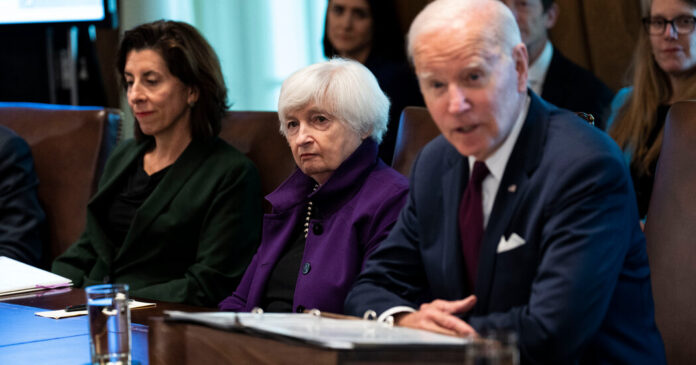The Fed’s rate hikes have made it more attractive for businesses and households to send money out of China and invest in the United States, even as Beijing imposes tough restrictions on moving money abroad.
China pledged not to gain a trade advantage by devaluing its currency as part of the Phase 1 trade deal with the United States three years ago. But the Biden administration’s options could be limited if China still allows its currency to weaken.
Global Debt
China has provided more than $500 billion to developing countries under its lending program, making it one of the world’s largest creditors. Many of these borrowers, including several African countries, have been struggling economically since the pandemic and face the possibility of defaulting on their debts.
The United States and other western nations have been pushing China to allow some of these countries to restructure and reduce their debt. But for more than two years, China has insisted that other creditors and multilateral lenders absorb financial losses as part of a restructuring. This has slowed the credit easing process at a time when millions of people in developing countries are food insecure and at risk of falling deeper into poverty.
In June, international creditors, including China, agreed to a debt cancellation deal with Zambia, which gave the country a grace period on interest payments and extended the maturity dates of its loans. The agreement did not require the World Bank or the International Monetary Fund to write off any debt, giving global policymakers like Ms Yellen hope of similar debt restructuring in poorer countries.
Human rights and national security issues
Tensions over national security and human rights have created an atmosphere of mutual distrust and affected economic relations. The flight of a Chinese surveillance balloon over the United States this year has deeply unsettled the American public, and members of Congress have urged the administration to disclose more of what it knows about the balloon. Biden’s recent labeling of Chinese leader Xi Jinping as a “dictator” also angered Chinese officials and state media.
American officials remain concerned about China’s human rights abuses, including the crackdown on the pro-democracy movement in Hong Kong and the imprisonment of predominantly Muslim ethnic minorities in northwest China’s Xinjiang region. A senior Treasury Department official said before Ms Yellen’s trip, on condition of anonymity, that the United States had no intention of backing down on its human rights views at the meetings in China.
Chinese officials continue to protest the various sanctions the United States has imposed on Chinese companies, organizations and individuals for threats to national security and human rights abuses – including sanctions against Li Shangfu, China’s defense minister. The Chinese government has cited these sanctions as a reason for its refusal to hold high-level military dialogues.














